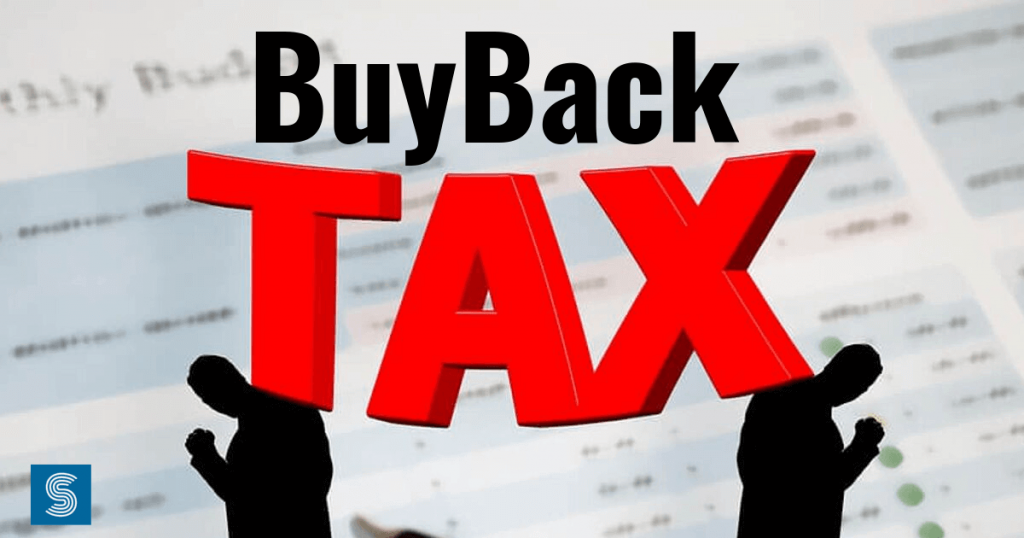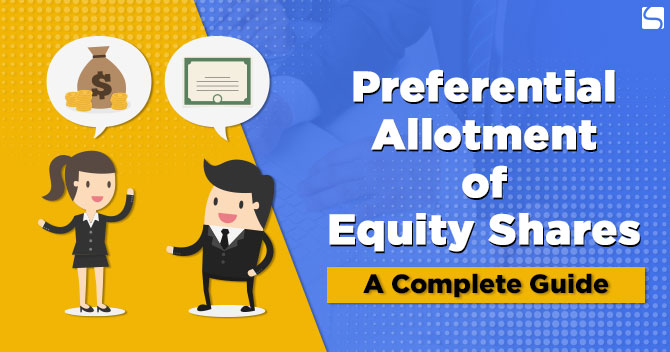Buyback Tax: Everything you Need to Know About It

Dashmeet Kaur | Updated: Oct 07, 2019 | Category: Buyback of Shares, SEBI Advisory
Lately, the corporate market got filled with a sudden buzz regarding the buyback tax. It all started when the Finance Minister, Nirmala Sitharaman, proposes to levy a tax on the buyback by the listed companies. Earlier all the unlisted companies were following such act, but now even the listed companies are obliged to pay 20% tax on buybacks. Allegedly, the amendments are made to restrain the misuse of the buyback to avoid taxes. The reports of the previous year showcase an accurate picture of corporate who have been using buybacks to return their money to shareholders rather than dividends. Since dividends attract distribution tax, thus this new provision puts an end to tax arbitrage.
Table of Contents
What is Buyback and how it is useful?
A buyback of equity share is a mode of restructuring the capital. It is an efficient scheme through which a company repurchases its outstanding share to decrease the number of available shares in the open market. Buyback enables companies to charge a valid value for their shares; for instance, a company having undervalued shares can do a buyback to render investors along with a return.
A buyback will not only bullish on the current operations of the company, but also it will inflate the proportion of earnings shares. Hence increase the stock price if the company maintains the same ratio of price-to-earnings.
Browse through our articles on services provided at Swarit Advisors, and just let us know if we can help you with your IPO or Comapny Takeover or SEBI Advisory Services.
Existing Provision of Buyback Tax
The government established the concept of buyback tax under Sec 115QA vide the Finance Act 2013. Here are the guidelines of buyback tax:
- A Tax rate of 20 percent levied on the amount of income distributed by unlisted companies. Distributed income refers to the “difference between the considerations paid by the company on buyback of shares less the amount which was received by the company for issue of such shares.”
- One noticeable thing about the act is that it was only applicable to unlisted companies and not listed entities.
- As the listed firms do not get bound by any legal restrictions, they got involved in many fraudulent activities like avoiding dividend distribution, tax arbitrage for domestic as well as global investors, etc.
- So the aftereffects of previous buyback tax compel the government to take strict actions against the listed organization.
Also, Read: Process for Buyback of Shares in India: A Guide
Amendments in the Buyback Tax
New amendments brought by the Financial Bill No. 2 2019, has proved to be a pivotal event for the listed companies. Let’s have a thorough look at the new amendments to the buyback tax:
- Now, the buyback of shares has to be levied by the listed companies.
- If any company purchases its shares from shareholders, it shall not be considered as a dividend because the government has excluded it under section 2(22) (iv) of the Income Tax Act.
- It resulted in section 115-O, ‘Dividend Distribution Tax shall not be attracted.’
- Government has passed separate amendments for unlisted companies and listed companies categorized as:
- Buy Back of Unlisted Shares
- Buy Back of Listed Shares
- A convenient way to identify the amendments is by comparing the before and after impact of revised act on both the shares.
Tax Rate of Buyback for Unlisted Shares
Following is the tax rate for unlisted shares:
- Section 150QA of the Finance Act provides for levy of additional tax at a 20% rate of the distributed income on account of a buyback of unlisted shares by the company.
- An additional income tax gets levied at the level of the company, the resultant income in the hands of shareholders got exempted from tax under section 10(34A) of the Income Tax Act.
- Therefore, one can conclude that the Financial Bill 2019 has not brought any amendments for the buyback of shares of unlisted firms.
Tax Rate of Buyback for Listed Shares
The tax rate for listed shares is follows:
- Section 46A of the Income Tax Act was applied to the listed shares, implying that the Normal Capital Gains (amount received in buyback – the cost of acquisition) must be computed.
- The period of holding shall be from the date of acquisition to the buyback.
- It was the only simple formula to calculate the capital gain on buyback of listed shares used by shareholders.
- In such a case, if listed companies’ buyback the shares, it was not compelled to pay any additional income tax.
The existing anti-abuse provision under section 115QA concerning the buyback of share from shareholders by unlisted companies consequently got extended to all the companies, whether listed or unlisted, undertaken from 5th July 2019.
- Primarily, Section 115QQA introduced as an anti-abuse provision. Its chief motive was to keep a check on the illegal practice of unlisted entities, i.e., resorting to buyback of shares instead of payments of the dividend.
- This practice of abuse was widely perceived amongst the unlisted companies wherein the taxpayers opted for tax avoidance.
- As some similar activities of tax arbitrage emerged in the listed shares, the government has no option than to apply the same act for listed companies as well.
Final Thoughts
In a nutshell, the introduction of the buyback tax has proven to be an outrageous deed for the listed companies who now cannot pursue their illicit acts. The proposed amendments were indispensable to curb the incidents of resorting to buybacks to avoid income tax. In the prospect, there will be an increase in dividend payouts as compare to buybacks. There will be a state of a mess if another proposal of the government recommending SEBI to increase the public shareholding in listed companies from 25% to 35% get approved along with buyback tax extension, but for now, not many issues are reported.
Also, Read: Procedure for Buyback of Shares and Other Specified Securities














